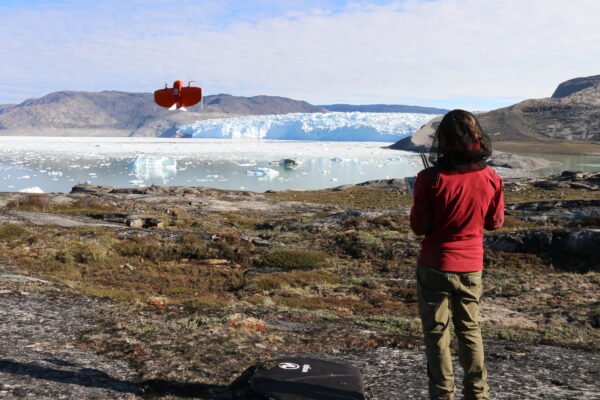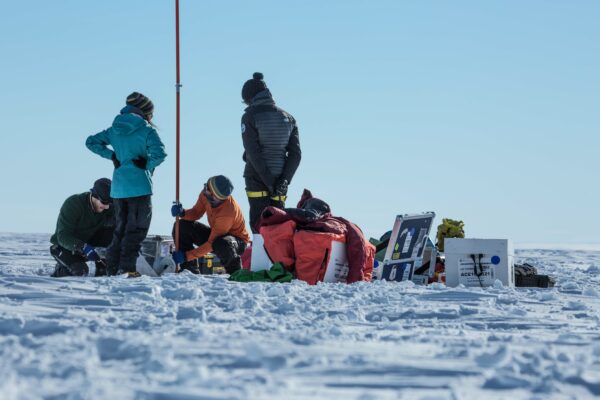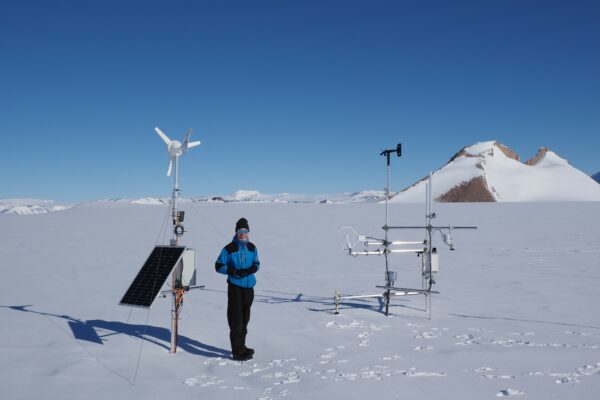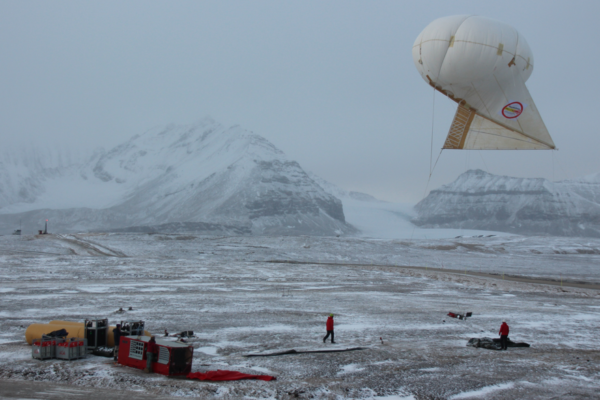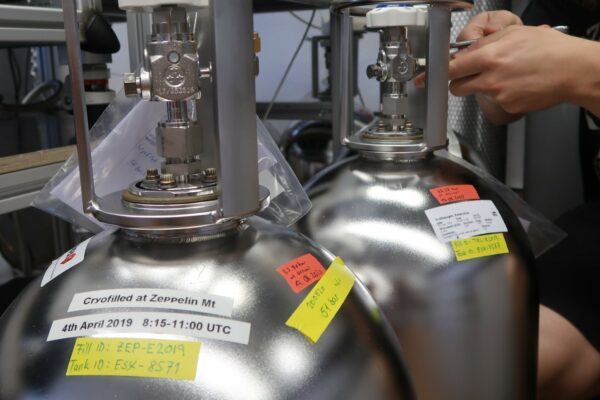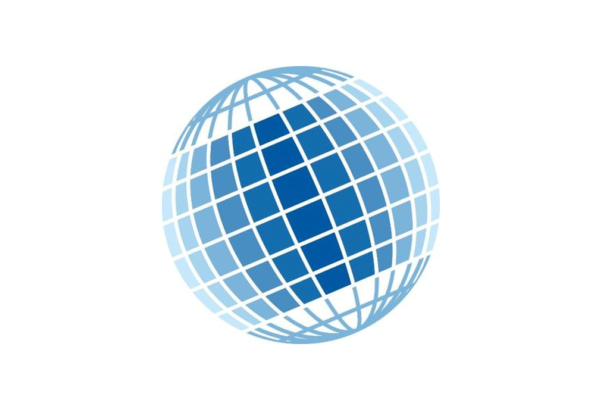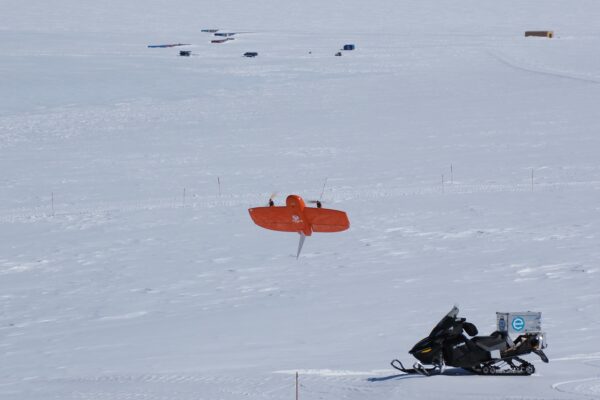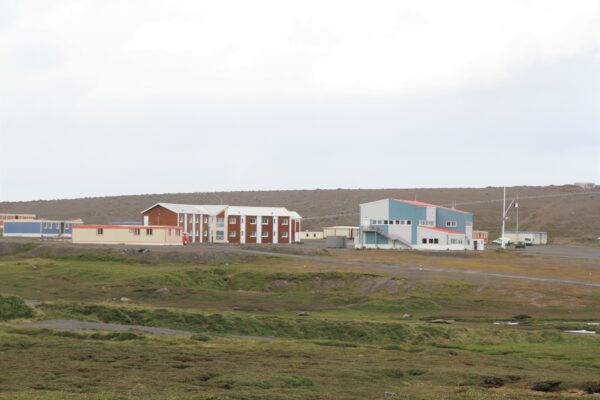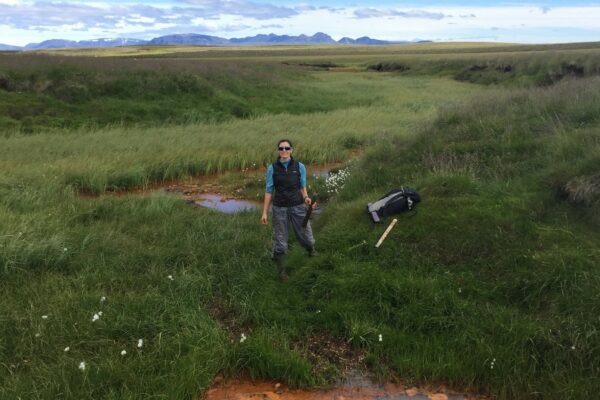Flying of a remotely controlled UAV for in-situ measurements. Eef van Dongen’s project “Monitoring of the calving glacier Eqip Sermia, West Greenland, using UAVs” was supported by the Polar Access Fund, 2018. © 2021 Eef van Dongen, all rights reserved
Read MoreArticles by: Laurence Mottaz
Vacancy for Scientific Director
The Swiss Polar Institute is looking for a new Scientific Director. Applicants should be leading scientists in polar/high-altitude research with strong research credentials anchored in the Swiss research community. The contract will offer a position at 20% (annualised) and have a duration of 4 years, renewable once. See the announcement […]
Read MoreSnow-atmosphere interactions in Antarctica – Armin Sigmund
Supported by the SPI, Armin Sigmund joined the Belgian Antarctic Research Expedition organized by the International Polar Foundation (IPF). He spent 19 days at Princess Elisabeth Antarctica (PEA) Station to measure the surface mass balance and associated processes such as snow sublimation (transfer into water vapor) and snow transport by […]
Read MoreCall announcement: SPI Flagship Initiatives
The SPI Flagship Initiative programme, enabling ambitious Swiss-led multi-annual and multi-disciplinary research programmes in polar or remote high-altitude regions, has just been launched. The funding will be focused on field campaigns (logistics, safety, etc.), data management, outreach, and programme coordination, thus providing temporary infrastructure for a Swiss-led polar research programme. The SPI Flagship […]
Read MoreFingerprinting the polar atmosphere – Martin Vollmer
I like being in polar regions to do research, but unfortunately, this time I did not have the opportunity to collect the air samples myself. Instead we relied on the expertise of our Norwegian colleagues, who were dedicated to sampling the apparently-pristine, polar atmosphere for us, so that we could […]
Read MoreSPI involved in EU-PolarNet 2
Following its participation in EU-PolarNet, the Swiss Polar Institute is now a partner of the EU-PolarNet 2 consortium, funded by Horizon 2020. Through EU-PolarNet 2, SPI will contribute to the mapping of existing strengths and capabilities in European polar research, help identify short and long-term polar science needs, shape future […]
Read MoreSwiss Polar Institute gains new national status
Founded in 2015 with the aim of supporting the research community, the Swiss Polar Institute (SPI) has now been selected as a “Research institution of national importance” for the period 2021-2024. This new status and additional funding by the Swiss Confederation will raise SPI to a new level to support […]
Read MoreSurvey about Swiss-French polar science collaboration
The Swiss Polar Institute, in collaboration with the French Polar Institute (IPEV), is circulating a questionnaire to help foster Franco-Swiss polar collaborations. We invite Swiss polar researchers to fill out this questionnaire and let us know how SPI-IPEV could support such collaborations or access by Swiss groups to French infrastructure/locations […]
Read MoreIron in Iceland – Laurel ThomasArrigo
In Icelandic soils, accumulation of soil organic carbon is aided by high soil iron concentrations, which arise from the volcanic origin of Iceland’s soils and high rates of aeolian deposition of poorly-weathered, iron-rich volcanic dust. The aim of this project is to understand the coupled fates of iron and carbon […]
Read More